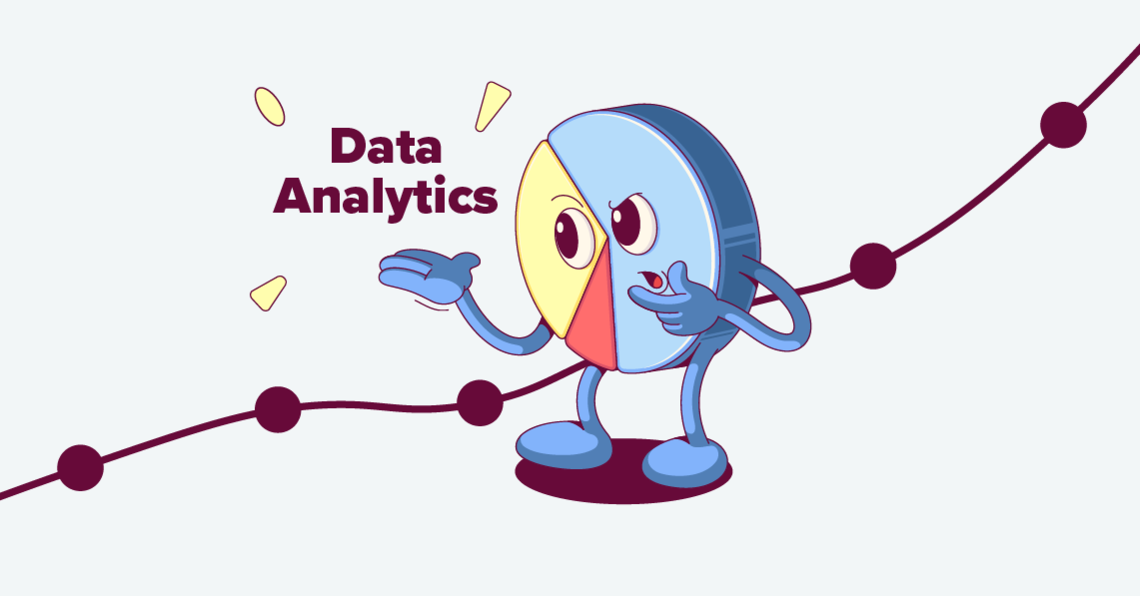Blog
The Importance of Data Analytics
If you’re not currently collecting business data and gaining meaningful insights from it, now is a good time to start!

If you’re not currently collecting business data and gaining meaningful insights from it, now is a good time to start!


August 30th, 2022
If you’re not currently collecting business data and gaining meaningful insights from it, now is a good time to start!
We don’t mean to get too philosophical in a blog about data analytics, but if you don’t know where you are, how can you know where you’re going?
For example, if a SaaS company selling accounting software doesn’t keep track of its churn rate, it won’t know that it needs to do something to prevent customers from canceling the service.
You can examine and analyze every aspect of your business–your products or services, your employees, your website and social media platforms, how many organic leads you get, marketing and PR campaigns and it goes on.
Data analytics gives businesses the historical insights necessary to understand how they’re performing and what actions they need to take to get the desired results. Understanding your past = building a bright future.
If you’re not currently collecting business data and gaining meaningful insights from it, now is a good time to start!
When you harness the power of data analytics, you can achieve so much more as a business.
Enhance your marketing efforts
With data analytics, you can answer questions like, Where are we getting most of our leads? Are people opening our newsletter? What’s the engagement rate on our paid social ads? Which demographics are most responsive to our ads? How can we personalize the experience for our customers?
Once you see what you’re doing well and where you can improve, your marketing team can make the necessary adjustments to not only reach the right people but reach more of them.

Cut operational costs
Gain insights into internal business operations and become a more cost efficient business. With this information, you’ll be able to implement automation and cut out the unnecessary. For example, after some analysis, you discover that one vendor you work with is eating up a large percentage, above the industry standard, of your bottom line. You decide to negotiate with them, understanding that if they don’t budge on their fees, you will look for a different partner.
Get better at forecasting business performance
When you analyze your data, you can recognize and evaluate trends and patterns that will allow you to accurately forecast several aspects of your business. With this pertinent information at your disposal, you’ll have a much clearer view of what steps you should take.
Would it be so much easier if you could discover whether or not time of the year affects how many sales you make or how your customers behave when you use a certain type of marketing tactic?
Improve your product and/or service offerings
Your data can give insights into your products and services, such as which price points and discounts garner the most sales and which offerings are best sellers. It can also give you insights into how your customers use these offerings like which features are the most and least popular. This information can inform your decision to make incremental improvements or implement a complete overhaul.
Provide better customer service
Understanding your customers’ wants and needs are critical for providing excellent customer service. With this knowledge, you know what steps you need to take next. For example, if you notice that a disproportionate amount of customers are canceling their subscription after you added a new feature to your software, it’s time to explore that and figure out how to remedy the problem.
In order to successfully leverage your data analytics, you must pinpoint your data sources, determine which data you actually need, gather that data, organize it and then analyze it to discover meaningful insights. This requires a special skill set and depending on your business, it could take a lot of time. Get the guidance and support of our data analytics experts so you can focus on what you do best.